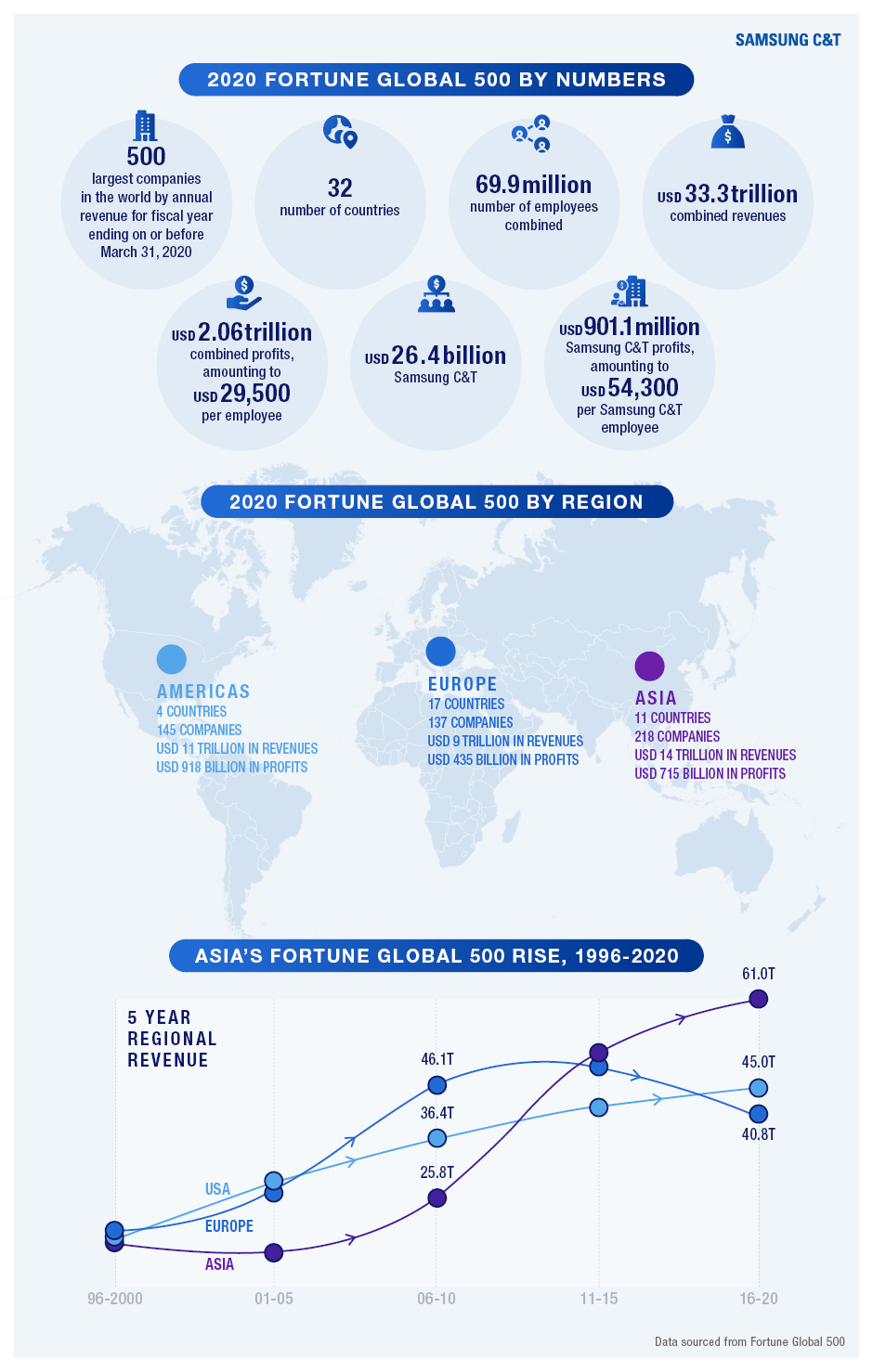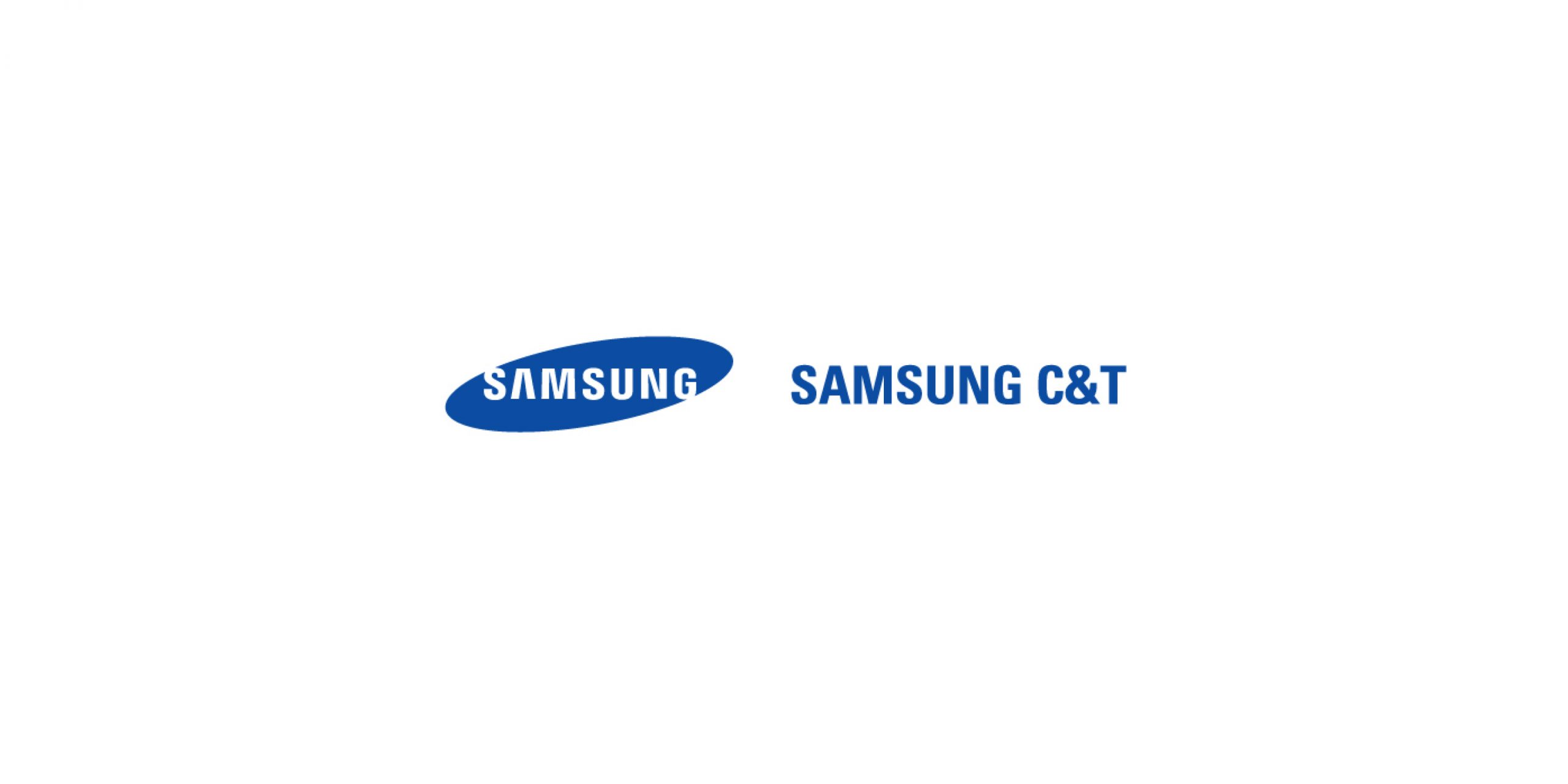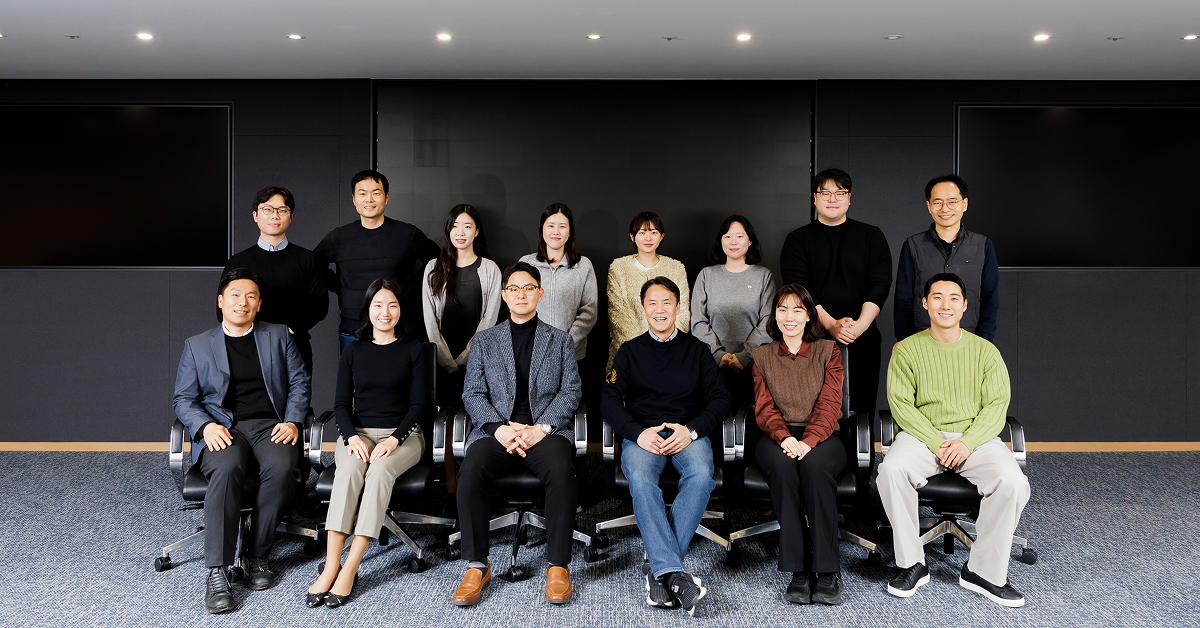Samsung C&T got some good news this month as the company was listed on the 2020 Fortune Global 500. Ranked at 481, its 2020 Global 500 listing marked the fourth consecutive year for Samsung C&T to be selected.
As opposed to the Fortune 500, which only relates to corporations based in the United States, the Fortune Global 500 is compiled based on the total revenues of the world’s largest companies. This is particularly important given the prominence of Asian firms in recent years, as we shall see below.
The Fortune Global 500 rankings for this year were measured according to the fiscal year ending on or before March 31, 2020.
A breakdown of the 500
Fortune magazine has been compiling and publishing its Global 500 list annually since 1990. It is seen as “the world’s best snapshot of the state of global business.”
As we witness the ongoing rise of Asian firms, the 2020 rankings include Samsung C&T among 14 Korean companies. The list also highlights the ascendancy of financial and energy corporations, which make up over 40 percent of the Global 500, and shows that Samsung C&T is among a group of firms that together employ nearly 70 million people.
Here is an overview of the big numbers for this year.
In addition to Samsung C&T securing its place on the Fortune Global 500, its commitment to sustainability and Environmental, Social, and Governance (ESG) factors has been consistently recognized by globally renowned agencies.
Samsung C&T has been listed in the Dow Jones Sustainability Indices (DJSI) World for three consecutive years. The indices are a global standard for sustainability assessment and investment, evaluating a company based on economic, environmental, and social criteria. Only those that are highly assessed in each category are included in the respective indices. Samsung C&T also ranked 52nd in the most recent Diversity & Inclusion Index presented by internationally renowned data provider Refinitiv. The index lists the most diverse and inclusive workplaces out of more than 7,000 companies worldwide, accounting for more than 70 percent of global market capitalization.








